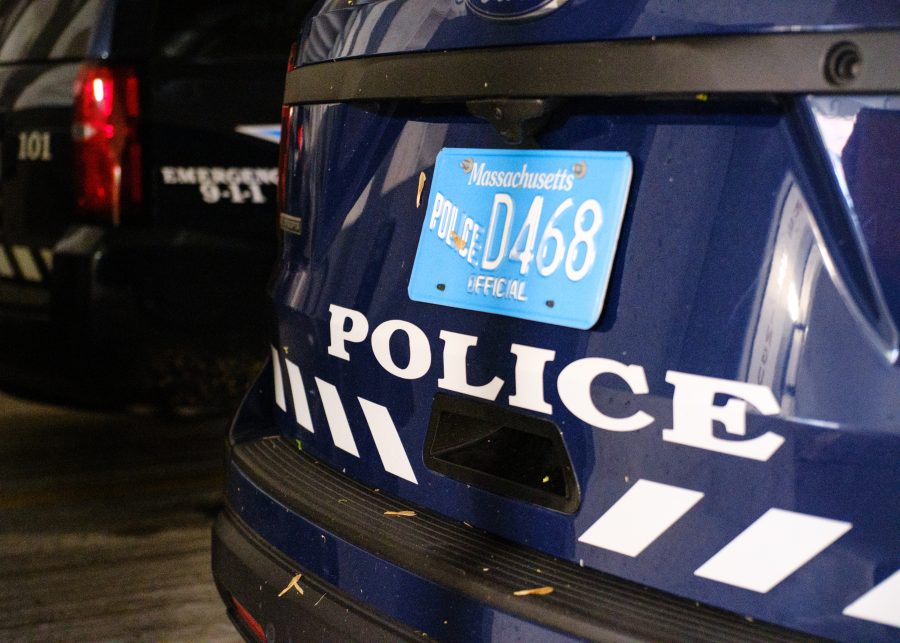The institution of policing finds its genesis in slave patrols in Southern slave-owning states, where brigades configured of white volunteers utilized vigilante strategies to enforce laws related to slavery. These brigades pinpointed the location of enslaved people and returned them after they escaped, quelled uprisings led by enslaved people and penalized enslaved people who were found or perceived to have broken plantation rules.
Participants within these patrols could enter into anyone’s home—irrespective of an individual’s race or ethnicity—if there were suspicions they were harboring people that had fled enslavement.
The municipal police departments established in the early 19th century, the predecessors of contemporary law enforcement, were disproportionately white, male and tasked with responding to social upheaval rather than a crime. Eastern Kentucky University criminologist Gary Potter states it was the expectation for officers to subdue a “dangerous underclass”—an underclass that was composed of African Americans, immigrants and poor people.
When Jim Crow laws were widely implemented in southern and some northern states, it was the police’s responsibility to enforce the racial segregation that was the central dogma of Jim Crow laws.
The idea that policing as an institution is designed to protect people is pure propaganda. This also overlooks the ways that the institution of policing causes irreparable harm to diverse communities.
This is most emphasized by a 2010 study that revealed that sexual misconduct was the second most reported form of police misconduct. The Buffalo News found in 2015 that an officer was accused of committing sexual misconduct every five days. The Washington Post maintains a database that keeps tabs on the number of Americans killed by law enforcement and aggregates that data by race, gender and other markers of identity. Of the 992 Americans that perished as a result of the actions of law enforcement in 2018, 229 of those individuals were African American. Although African Americans only represent 12 percent of the American population, African Americans accounted for 23 percent of police fatalities according to the Post’s data.
A Stanford University research team compiled data from nearly 100 million traffic stops from 2011-2017 to inquire if there was evidence of systemic racism behind these traffic stops. They concluded that African American drivers had a higher probability of being stopped and having their cars searched than white drivers. It was also determined that the percentage of Black drivers stopped decreased after dark as a driver’s skin color becomes significantly more difficult to spot from outside a car.
Mariame Kaba, a veteran activist whose organizing revolves around the abolition of police and prisons, has consistently opposed the notion of reform. Kaba, in an opinion piece for NBC News, uses the example of politicians proposing body cameras as a way to illustrate that reform is insufficient. She states that investing in body cameras to hold the police accountable “is giving money into the very system you want to shrink. The cameras are turned on you, the citizen, not on the cop. The cops will have control over all the footage.” For reform to be considered a feasible lens with which to hold the police accountable, it requires investing more money, not less, into law enforcement, and this heightens the power that police officers already have. Thus, reforming the police enables police officers to commit the abuses of power that reform was tasked with preventing.
Kaba, writing an opinion piece in the New York Times, suggests, “We should redirect the billions that now go to police departments toward providing health care, housing, education and good jobs. If we did this, there would be less need for the police in the first place.” She elaborates, “We can build other ways of responding to harms in our society. Trained ‘community care workers’ could do mental health checks if someone needs help. Towns could use restorative-justice models instead of throwing people in prison.”
Abolition will not happen overnight. However, it requires the gradual steps that Kaba proposes for the abolition of the carceral state, to become closer to being a material reality rather than being derided as an elusive utopian fantasy. Far from being utopian fantasy, abolition foregrounds the opinions of those most harmed by the police state and recognizes that these institutions are man-made and that they can, and should, be broken down. Abolition, while complex in its execution, is based on one simple principle: all people deserve to live within communities that prioritize nourishment and care that responds to human transgression with humanity rather than cruelty.
Sources:
https://www.nytimes.com/2020/06/12/opinion/sunday/floyd-abolish-defund-police.ht

